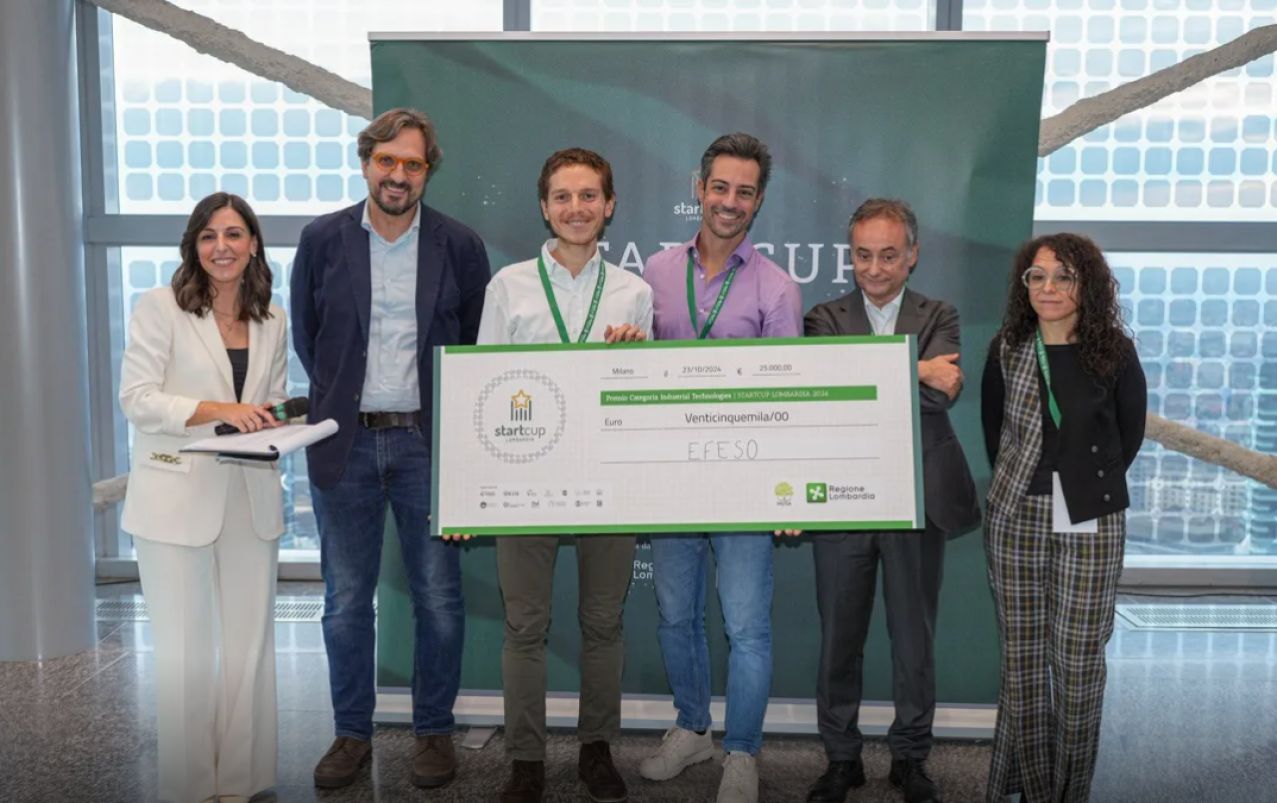Low-energy-consumption and silicon-compatible technologies, EFESO aims to tackle global electronics challenges with advanced semiconductors and ultra-efficient devices
EFESO is among the winners of StartCup Lombardia 2024 in the deep tech sector. The mission of EFESO is to revolutionize the electronics landscape by developing sustainable, ultra-low-energy technological devices. These innovative devices leverage advanced materials capable of combining key properties into a single semiconductor, introducing a new generation of ultra-energy-efficient devices that surpass the limitations of traditional CMOS transistors. EFESO seeks to offer solutions that significantly improve energy efficiency, paving the way for smaller, higher-performing chips.
A distinctive feature of EFESO’s technology is its full compatibility with current silicon technology. This enables seamless integration into existing production lines, reducing implementation costs and accelerating the large-scale adoption of this innovation. The materials used by EFESO not only enhance performance but also address the urgent issue of energy inefficiency in current electronic devices.
According to estimates, by 2040, computing technologies could consume over 50% of global energy, a trend that risks becoming unsustainable. The growing demand for computing power requires an ever-increasing number of transistors, but the continued miniaturization of these components is approaching inevitable physical limits. In this context, EFESO represents a tangible response to one of the most pressing challenges of our time: reducing the global energy consumption of computing technologies.
For Federico Fagiani, one of the creators of EFESO, this project can realize an “innovative device that could replace or at least assist the transistor, the fundamental building block of electronics. The more we progress, the more this device becomes unsustainable, which is why a paradigm shift is necessary. EFESO sets the ambitious goal of replacing it and can be applied in any context, from smartwatches to phones, from data centers to computers. Its versatility is one of its strengths. The impact could be truly enormous in the field of electronics. Our plan is to develop the first prototype and create the initial sensors within a year and a half.”
According to Christian Rinaldi, professor at Politecnico di Milano and co-leader of EFESO, the impact of this project could be highly transversal, which is why it will be necessary to “target the closest market, which could be that of wearable devices, where battery energy consumption is critical,” he explains. To broaden its scope, “we can also consider the AI environment, including all devices and networks that enable Artificial Intelligence to be compatible and low-power.” The long-term goal of EFESO is to “capture the interest of major semiconductor industries.”





